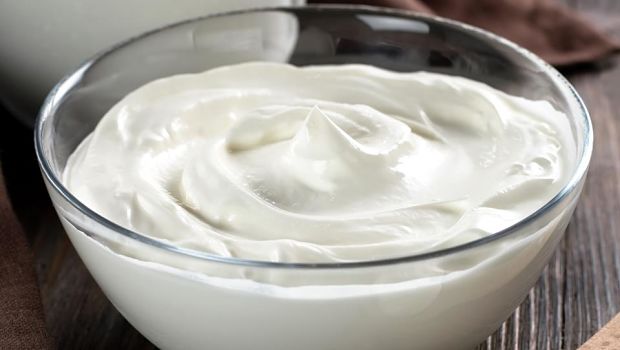We know it’s good for digestion, clear skin and glossy hair.
But a new study has found yogurt could also treat depression According to Daily mail.
The creamy breakfast snack contains lactobacillus, probiotic bacteria found in live-cultures yogurt.
Experiments on mice showed playing with this ‘good bacteria’ alone was strong enough to ease blood pressure, stress and depression.
They found that the amount of Lactobacillus in the gut affects the level of a metabolite in the blood called kynurenine, which has been shown to drive depression.
When Lactobacillus was diminished in the gut, the levels of kynurenine went up – and depression symptoms set in.
Researchers claim the findings show our growing understanding of the gut microbiome could allow us to treat mental health naturally, doing away with toxic drugs.
‘The big hope for this kind of research is that we won’t need to bother with complex drugs and side effects when we can just play with the microbiome,’ explained lead researcher Dr Alban Gaultier.
‘It would be magical just to change your diet, to change the bacteria you take, and fix your health – and your mood.’
‘It’s a huge problem and the treatments are not very good, because they come with huge side effects,’ he said.
The role of the gut microbiome – the bacteria that live inside us – has been of tremendous interest to researchers studying depression and other health conditions, both mental and physical.
Dr Gaultier, set out to see if he could find a concrete link between depression and gut health.
‘When you’re stressed, you increase your chance of being depressed, and that’s been known for a long, long time,’ he said. ‘So the question that we wanted to ask is, does the microbiome participate in depression?’
The answer appears to be yes.
Looking at the composition of the gut microbiome before and after mice were subjected to stress, Gaultier’s team found that the major change was the loss of Lactobacillus.
With the loss of Lactobacillus came the onset of depression symptoms. Feeding the mice Lactobacillus with their food returned them to almost normal.
‘A single strain of Lactobacillus,’ Dr Gaultier said, ‘is able to influence mood.’
He and his team then went on to determine the mechanism by which Lactobacillus influences depression.
‘This is the most consistent change we’ve seen across different experiments and different settings we call microbiome profiles,’ explained researcher Dr Ioana Marin, a graduate student.
‘This is a consistent change. We see Lactobacillus levels correlate directly with the behavior of these mice.’
Dr Gaultier was careful to call the symptoms seen in mice as ‘depressive-like behavior’ or ‘despair behavior,’ as mice have no way to communicate that they are feeling depressed.
But those symptoms are widely accepted as the best available model for looking at depression in creatures other than humans.
Based on the new findings, Dr Gaultier plans to begin studying the effect in people as soon as possible.
He intends to examine the effects of Lactobacillus on depression in patients with multiple sclerosis, a group in which the disorder is common.
Promisingly, the same biological substances and mechanisms Lactobacillus uses to affect mood in mice are also seen in humans, suggesting the effect may be the same.
The researchers warned that yogurt should not yet be seen as a treatment alone.
While there is no harm in people with depression eating yogurt, people receiving treatment for depression should not stop taking their medications without consulting their physicians.
N.H.Kh

